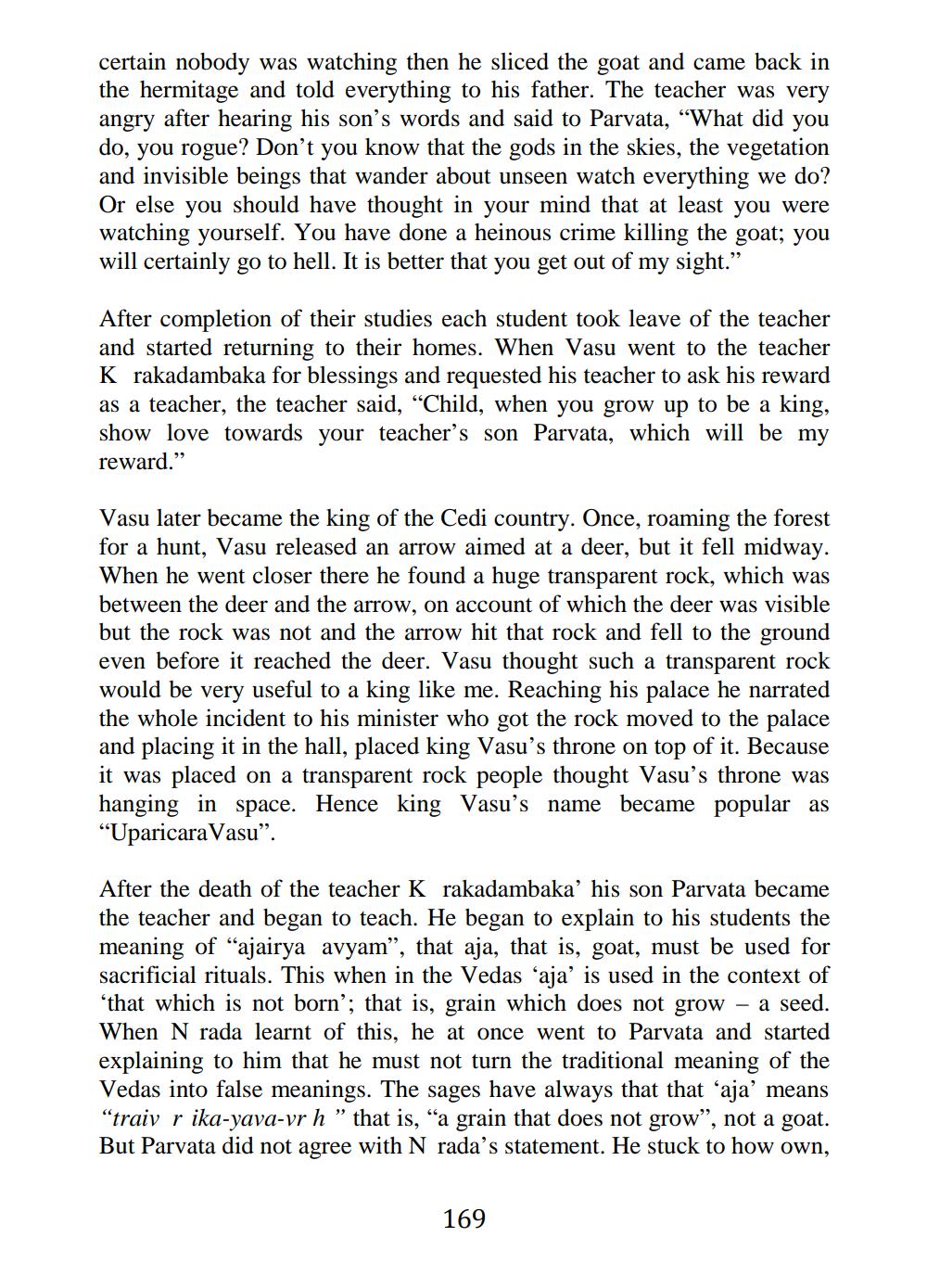________________
certain nobody was watching then he sliced the goat and came back in the hermitage and told everything to his father. The teacher was very angry after hearing his son's words and said to Parvata, “What did you do, you rogue? Don't you know that the gods in the skies, the vegetation and invisible beings that wander about unseen watch everything we do? Or else you should have thought in your mind that at least you were watching yourself. You have done a heinous crime killing the goat; you will certainly go to hell. It is better that you get out of my sight.”
After completion of their studies each student took leave of the teacher and started returning to their homes. When Vasu went to the teacher K rakadambaka for blessings and requested his teacher to ask his reward as a teacher, the teacher said, “Child, when you grow up to be a king, show love towards your teacher's son Parvata, which will be my reward."
Vasu later became the king of the Cedi country. Once, roaming the forest for a hunt, Vasu released an arrow aimed at a deer, but it fell midway. When he went closer there he found a huge transparent rock, which was between the deer and the arrow, on account of which the deer was visible but the rock was not and the arrow hit that rock and fell to the ground even before it reached the deer. Vasu thought such a transparent rock would be very useful to a king like me. Reaching his palace he narrated the whole incident to his minister who got the rock moved to the palace and placing it in the hall, placed king Vasu's throne on top of it. Because it was placed on a transparent rock people thought Vasu's throne was hanging in space. Hence king Vasu's name became popular as “Uparicara Vasu”.
After the death of the teacher K rakadambaka' his son Parvata became the teacher and began to teach. He began to explain to his students the meaning of “ajairya avyam”, that aja, that is, goat, must be used for sacrificial rituals. This when in the Vedas ‘aja' is used in the context of 'that which is not born'; that is, grain which does not grow - a seed. When N rada learnt of this, he at once went to Parvata and started explaining to him that he must not turn the traditional meaning of the
edas into false meanings. The sages have always that that ‘aja' means "traiy r ika-yava-vr h” that is, "a grain that does not grow”, not a goat. But Parvata did not agree with N rada's statement. He stuck to how own,
169




